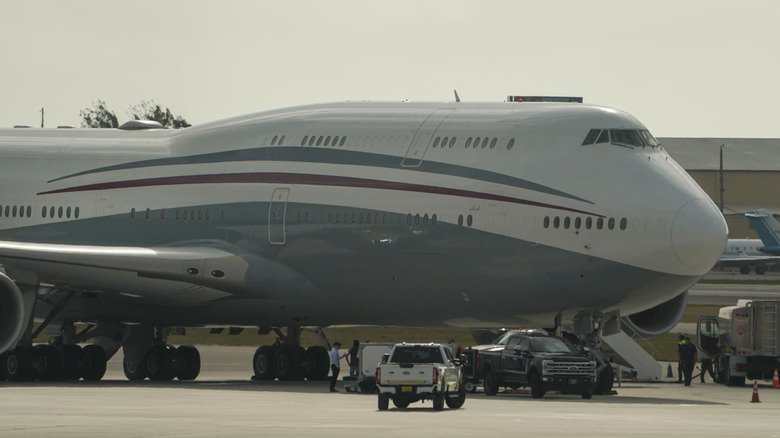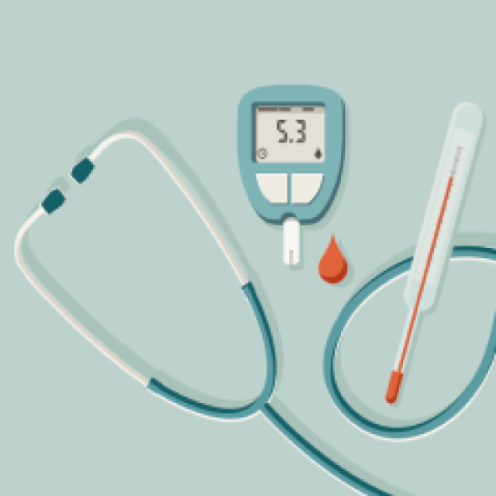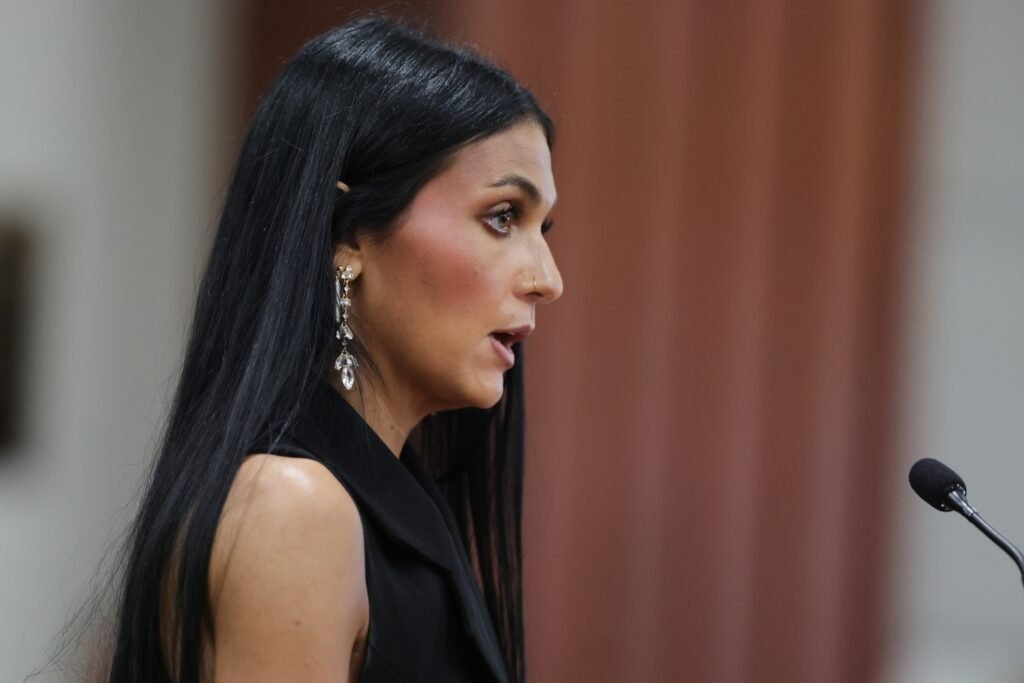The new trickle of aid Israel has allowed into Gaza is not enough to stave off famine, aid groups have warned, as a new round of “tactical pauses” were set to take place Monday.
The partial easing of restrictions comes amid mounting global outrage over rising deaths and scenes of starvation under Israel’s military offensive on the Palestinian enclave it has besieged.
“This is progress, but vast amounts of aid are needed to stave off famine and a catastrophic health crisis,” United Nations Emergency Relief Coordinator Tom Fletcher warned in a statement Sunday after Israel announced a pause in military operations in certain areas for 10 hours daily.
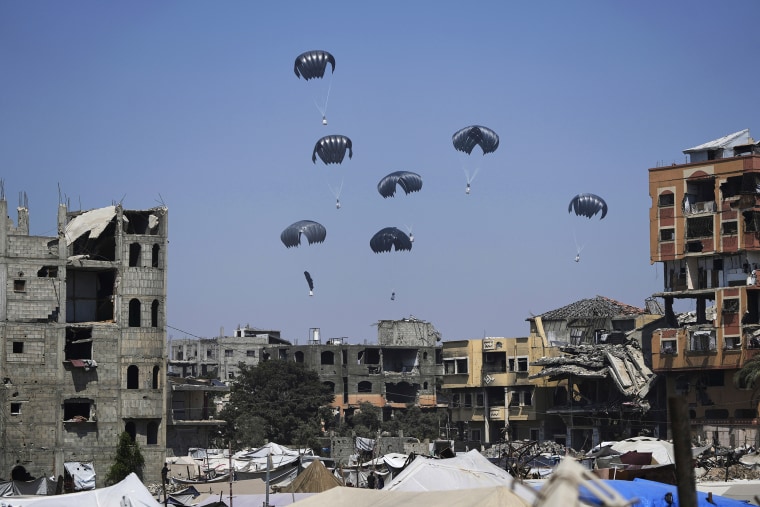
Sunday’s aid deliveries were a “drop in the ocean” and the days ahead will be “make or break” in addressing the hunger crisis, Fletcher told British broadcaster BBC News on Monday.
His warnings were echoed by others as the Palestinian health ministry in the enclave said Monday that 14 new deaths over the past 24 hours were attributed to “famine and malnutrition,” with two children among those killed.
That brought the total number of deaths due to malnutrition up to 147, including 88 children, since the war began, the health ministry said, with most of those recorded in recent months, according to statements from the United Nations. NBC News was not able to independently confirm the figures.
Humanitarian groups and doctors have warned for weeks of mounting malnutrition in Gaza, with Israel allowing only a “basic” amount of food in since May when it lifted its weekslong blockade barring the entry of aid into the enclave.
“The scale of this needs to be a lot bigger and immediate to be able to make any dent,” Beckie Ryan, response director in Gaza for CARE, a humanitarian agency working to address global hunger, said in a phone interview Monday morning,
Ryan expressed some optimism but added that a ceasefire would be the best way to address the spiraling hunger crisis.
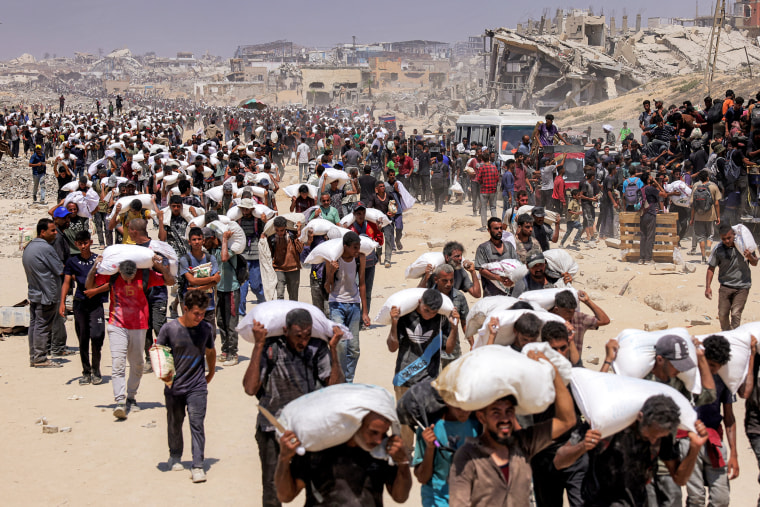
Just under 30 aid packages carrying food were airdropped over Gaza on Sunday, COGAT, the Israeli military’s liaison with the Palestinians, said in a statement.
Video captured by NBC News’ crew on the ground showed scores of Palestinians running toward a handful of parachutes dotting the sky in northern Gaza, which COGAT said was airdropped in collaboration with the United Arab Emirates and Jordan.
Meanwhile, Palestinians could could also be seen carrying bags of flour slung over their shoulders after more than 120 trucks carrying aid were collected and distributed by the U.N. and other aid organizations, according to COGAT.
Abdul Rahman Al-Kahlout, 18, said he waited for hours under the blazing sun in hope of reaching the supplies before they ran out.
“We died in the sun for four hours,” Al-Kahlout said. He described shots being fired and soldiers surrounding Palestinians as they waited for the aid several times. He said he feared he was “going to die for flour.”
More than 1,000 people, including children, have been killed by Israeli forces while waiting for and trying to reach aid since a new aid distribution system was implemented in late May, led by the controversial U.S. and Israel-backed group the Gaza Humanitarian Foundation.
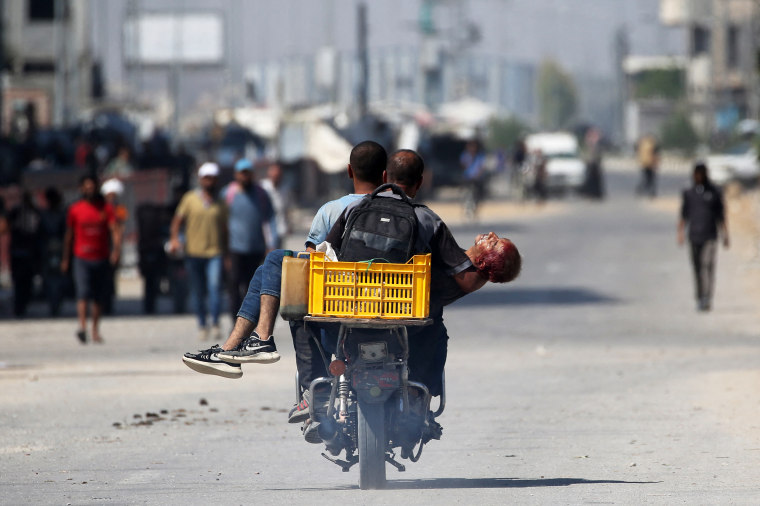
Health officials in Gaza said Israeli attacks killed at least 41 Palestinians from late Saturday into Sunday, including 26 people who were seeking aid, The Associated Press reported.
Facing growing pressure from the global community, Israel has sought to justify both its restrictions and the introduction of a new distribution system by arguing that Hamas has been diverting aid from civilians in the enclave throughout the war.
But an internal U.S. government analysis has found no evidence of systematic theft of aid supplies by Hamas over the past 20 months, according to a report presented to State Department officials and later seen by NBC News. The IDF dismissed the report as “biased.”
Both the United Nations Office for the Coordination of Humanitarian Affairs and the World Food Programme have previously told NBC News that they had not seen any evidence of Hamas diverting aid.
The World Food Programme said Sunday that it had enough food in and on its way to the region to feed the entire population of Gaza “for almost three months,” if enabled to do so, as it warned that a “third of the population” is still “not eating for days.”
Chantal Da Silva reports on world news for NBC News Digital and is based in London.
Abigail Williams contributed.



